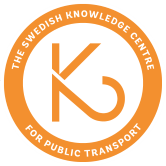Strategies for sustainable accessibility with public transport – new ways of dealing with social consequences and needs in public transport planning
Strategies for sustainable accessibility with public transport – new ways of dealing with social consequences and needs in public transport planning
The planning of public transport systems has for a long time prioritised the so-called high demand- routes. This may have negative consequences for certain groups of users and their accessibility. The public transport industry sees, due to the traditional prioritisation of high demand-routes, a need for knowledge of, and greater consideration for, social aspects and the needs of different groups. This project analyses the social aspects of sustainable accessibility. The project aims to analyse how, and in which situations, the planning of public transport services can become more supportive of the needs of different user groups. The project analyses how public transport industry actors can balance potentially competing social, economic and ecological goals when deciding on the design of public transport systems and networks. The aim is to a) develop knowledge about how sustainable accessibility with a focus on social aspects can be defined, and b) increase awareness and reflection on sustainable accessibility in planning and decision-making by developing qualitative and quantitative methods and strategies that can be used by planners and decision-makers in concrete planning, e.g. during the preparation of public transport plans. The project is carried out as a close collaboration between researchers at LTH, Malmö University and VTI, together with representatives from the public transport authorities in Stockholm, Västra Götaland, Skåne and the Swedish Transport Administration.
